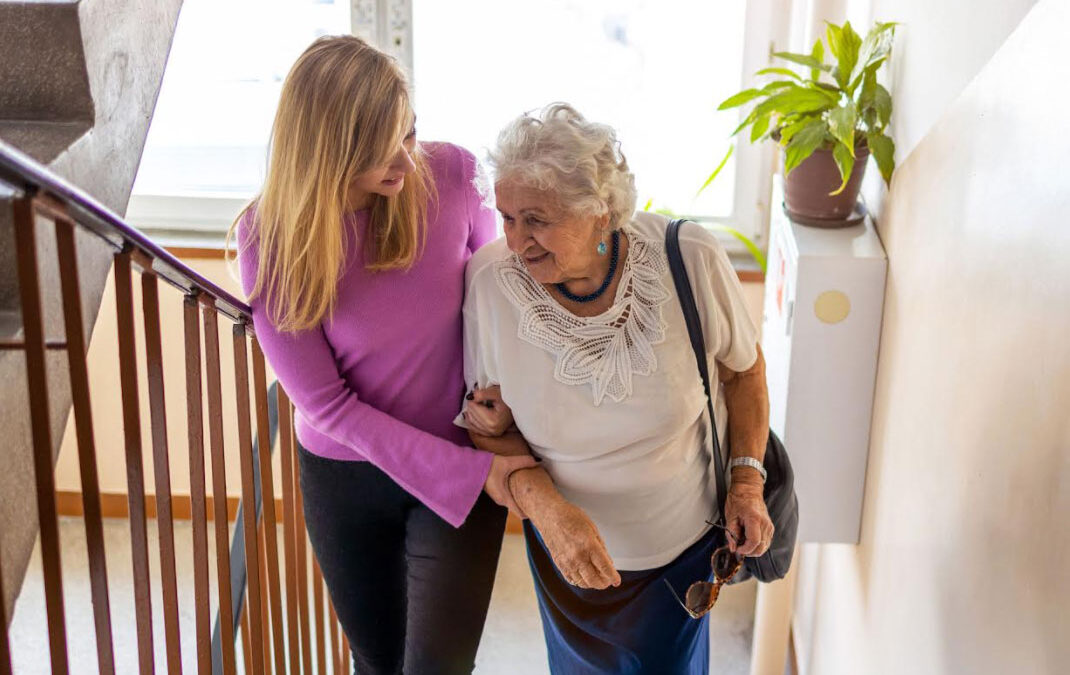Are you beginning to notice your parents aren’t preparing healthy meals as they once did? Or maybe they’re struggling with grooming or keeping up with the laundry? It’s not uncommon that as we grow older, some of life’s basic tasks can become more of a challenge.
But beyond needing possible assistance with bathing, medication management or help with grocery shopping, one feature can be profoundly detrimental to your parents’ heath.
Becoming socially isolated.
What is social isolation and loneliness?
The Centers for Disease Control and Prevention (CDC) defines loneliness as the feeling of being alone even if socially connected, while isolation results from a lack of social connections. Social isolation can lead to loneliness for some but it’s also possible to feel lonely and be surrounded by others.
Social isolation is considered a public health risk as it can also contribute to developing other serious medical conditions. It is also not rare. The CDC cites a report that found more than one-third of adults aged 45 and older felt lonely and nearly one-fourth of those aged 65+ were considered to be socially isolated.
Age can increase the risk for isolation because of circumstances that older adults may be more likely to experience, such as living alone, having developed chronic illnesses or having lost family or friends.
Health effects of isolation and loneliness
Studies have revealed evidence that social isolation for those over the age of 50 may increase their risk of:
- Health conditions that rival the same results of smoking, obesity and physical inactivity
- A 50% increased risk of dementia
- A 29% increased risk of heart disease and 32% increased risk of stroke
- Higher rate of depression and anxiety
Are your parents isolated?
Every individual may respond differently but there are circumstances that can increase the risk of becoming lonely or socially isolated. The National Institute on Aging suggests the following situations may increase the possibility of older adults developing loneliness or social isolation:
- Living alone
- Unable to leave their home
- Experiencing a major loss or life change
- Having financial difficulties
- Providing caregiving services
- Having psychological or cognitive challenges
- Having limited social support
- Experiencing trouble hearing
- Living in a rural or isolated area
- Having language barriers with others
- Experiencing discrimination
- Not engaged in activities or feel a lack of purpose
Tips to encourage your parents from becoming isolated
The National Institute on Aging also offers these suggestions to try:
Make sure your parents are eating healthy, exercising and getting the needed amount of sleep.
Urge your parents to join in activities that they enjoy – and ones that involve others.
Once it is defined, encourage them to become involved in meaningful activities that support their passions.
Helping others goes a long way to helping ourselves feel better. Look for opportunities that match your parents’ interests or favorite causes.
It’s never too late to learn. And a class is a great place to expand the mind and stimulate the brain – as well as the perfect opportunity to meet others.
Help your loved ones find ways to stay connected with family, friends and neighbors. Knowing that there are others that care can help fight off loneliness and a sense of isolation.
Although we often think face-to-face interactions are best, friendships and connections can still be had digitally. This offers a great way to stay in touch especially if miles or mobility is an issue.
If your parents are able to care for an animal and are interested, pets can provide amazing companionship and a sense of connection.
The benefits of exercise extend to both cognitive and physical advantages and it doesn’t have to be strenuous. Joining in with others makes it social. And there are many games that make being active fun.
If they belong to a faith-based community, suggest they become more involved. Help them consider opportunities in their community or to join an advocacy organization and make a difference.
Consider an assisted living community
There is one solution that not only can provide relief against developing loneliness or social isolation but also offers several other benefits – an assisted living community.
If your parents could use a little help with daily tasks, such as dressing, bathing, meals or other activities, you may want to check into all the benefits that the right community could offer. And one of the biggest advantages they’ll discover is how easy and natural it will be for them to meet people and make new friends.
Not only will they find much in common with their neighbors and other residents, but they’ll find several opportunities to interact at the many scheduled activities and social events. And all of it is available right outside their door.
Ingleside at Rock Creek Assisted Living
If you’re concerned that your parents are becoming lonely or socially isolated, we hope the above tips are helpful. The impact to their physical and cognitive health is serious but there are steps that can be taken.
If your loved one also needs help with the activities of daily living, you may find an assisted living community to be the perfect choice.
At Ingleside at Rock Creek Assisted Living, we provide a helping hand to our residents. You’ll also find private residences so your loved one can maintain privacy and many social opportunities that provide fun, education and artistic endeavors. The possibilities to meet and make new friends are easy and ongoing with so many activities and events.
And our compassionate team is not only here to help your loved one with basic tasks but to encourage them to live a full and enriched life.
If you’d like more information about assisted living, please visit our website for more information. Call (202) 846-2651 if you have any questions or would like to schedule a personalized tour today.

